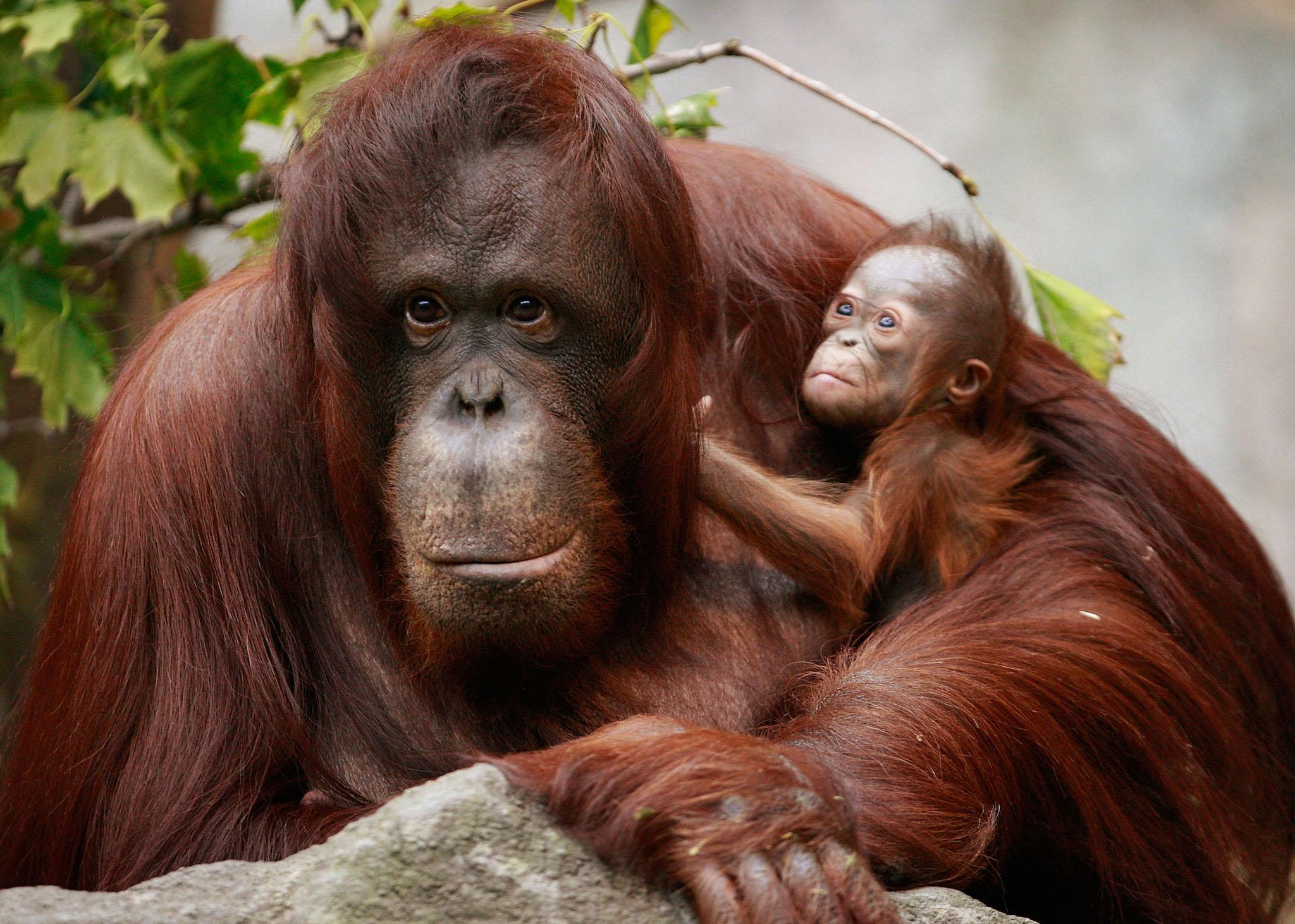Borneo has lost half its orangutans due to hunting and habitat loss
'Their forests homes have been lost and degraded, and hunting threatens the existence of this magnificent great ape'

Your support helps us to tell the story
From reproductive rights to climate change to Big Tech, The Independent is on the ground when the story is developing. Whether it's investigating the financials of Elon Musk's pro-Trump PAC or producing our latest documentary, 'The A Word', which shines a light on the American women fighting for reproductive rights, we know how important it is to parse out the facts from the messaging.
At such a critical moment in US history, we need reporters on the ground. Your donation allows us to keep sending journalists to speak to both sides of the story.
The Independent is trusted by Americans across the entire political spectrum. And unlike many other quality news outlets, we choose not to lock Americans out of our reporting and analysis with paywalls. We believe quality journalism should be available to everyone, paid for by those who can afford it.
Your support makes all the difference.Borneo has lost more than 100,000 orangutans in the space of just 16 years as a result of hunting and habitat loss, according to a new report.
Logging, mining, oil palm, paper, and linked deforestation have been blamed for the the diminishing numbers.
However, researchers also found many orangutans have vanished from more intact, forested regions, suggesting that hunting and other direct conflict between orangutans and humans continues to be a chief threat to the species.
The report published in the Current Biology Journal found more than 100,000 of the island's orangutans vanished in the period of 1999 to 2015.
“Orangutans are disappearing at an alarming rate," said Emma Keller, agricultural commodities manager at the Worldwide Fund for Nature (WWF).
"Their forests homes have been lost and degraded, and hunting threatens the existence of this magnificent great ape.
“Immediate action is needed to reform industries that have pushed orangutans to the brink of extinction. UK consumers can make a difference through only supporting brands and retailers that buy sustainable palm oil.”
Around half of the orangutans living on the island of Borneo, the largest island in Asia, were lost as a result of changes in land cover.
Researchers said the Bornean orangutan’s survival is dependent on forging successful alliances with logging companies and other industries and raising public awareness of the issue.
Looking at predicted future losses of forest cover and the presumption orangutans are ultimately not able to stay alive outside forest areas, the researchers predict that over 45,000 more orangutans will be lost in the space of the next 35 years.
The report comes after an orangutan was shot at least 130 times with an air gun before it died earlier in the month, according to police in Borneo.
Join our commenting forum
Join thought-provoking conversations, follow other Independent readers and see their replies
Comments